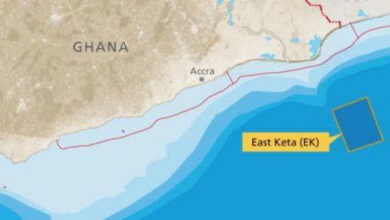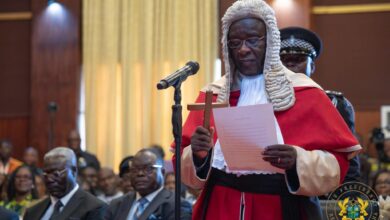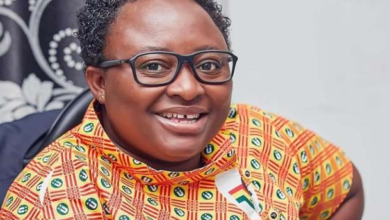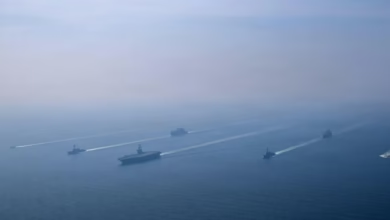
Why would the NPP want to commit political suicide in 2024?
It is early days yet but the coordinated attempt by a group of people to forcefully push the Bawumia agenda on social media has compelled me to write this piece.
I write to bring the minds of the NPP supporters across the country to certain significant political realities that are either deliberately or naively being ignored by those who are behind this social media action.
Political parties are formed with the sole objective to win political power from the people for the good of the people. Political parties do not produce power on their own.
What they do is that they produce people and manifestoes for power from the people. Political power resides with the people who at every election decide which political party is good enough to govern them based on the candidates and manifestoes they present.
In other words, political parties can be viewed as production units that produce candidates and manifestoes and offer them for sale on the political market for profit (power).
One major mistake most of the political parties make is that they rarely take into consideration the nature and dynamics of the political market when deciding on which candidates to produce for an election. These days most delegates only take into consideration the highest payer.
Political parties usually have the erroneous impression that those who have been voting for them in previous elections would always vote for them regardless of their conduct and the type of candidate and manifesto they present to them.
Truth be told, no political party can win an election with its core or registered supporters. Political parties would necessarily have to appeal to people who are called the floating voters before they can win elections.
So, when a political party makes a decision that tends to cause disaffection among a section of its core members, its electoral fortunes dwindle significantly in an election.
Therefore, any kind of decision-making process at any level of the party becomes critical and those who are in the positions to make decisions for the party should be made to understand the importance and consequences of their decisions.
In the last elections, some decisions which turned out to be detrimental cost the party a great deal of political fortune. In 2023, the party will be making a very critical decision that will significantly determine who will lead the party to victory in the 2024 elections.
The decision-makers (the delegates) can either get it right or get it wrong. If they allow money alone to be the determining factor, they would get it wrong.
Again, if they don’t broaden their horizon of thinking and take into account certain critical factors, particularly the ones that pertain to the peculiar nature and dynamics of the Ghanaian political market, they would surely get it wrong.
I really don’t expect every NPP member to agree with me on the issues raised in this piece, but if you are a member or sympathizer of the party who cares about the 2024 elections, dispassionately reflect on every one of the issues raised below and possibly share with your NPP friends.
The Winning Formula that must Stand
A winning formula is hard to come by and so when you are fortunate to find one, you keep it conscientiously, especially when you find yourself in a very competitive environment.
The NPP has derived for itself a winning formula that has proven to be almost perfect since the year 2000. The wisdom of those party fathers who came up with this gift of formula to the party must be appreciated and respected.
Without doubt, the formula was derived based on the nature and dynamics of the Ghanaian political market.
Here is the power-winning formula: A Southerner Christian and a Northerner Muslim. And, as I mentioned, it has almost worked to perfection over the years.
In the year 1998, after winning the party’s presidential primary, J. A. Kufuor used this formula to secure political power in the 2000 elections with 56.9% and used the same formula to retain the power in 2004 with 52.4%.
In the year 2008, candidate Nana Addo used this same formula when he combined with Dr. Bawumia for the first time.
The two almost broke through the two terms wall to secure third term for the party.
The party narrowly lost the election in the second round after leading in the first round.
That narrow painful defeat had nothing to do with the formula. It had everything to do with certain avoidable mistakes the party committed internally.
In 2012, Nana Addo, seeing the efficacy of the formula, repeated it and, in my opinion, won the election which was stolen from him. It ended up in court but the Supreme Court upheld the declaration of the Electoral Commission.
Interestingly, it was this same formula that won the NPP power in both 2016 and 2020 elections with 53.7% and 51.30% respectively. Note this, in their 2008 and 2012 victories, the NDC only managed to win by 50.2% and 50.7% respectively.
They couldn’t make 51%. This serves as clear evidence of the efficacy of the NPP’s formula.
So, what would cause a political party to want to change its winning formula? It is really unthinkable that a political party that just won an election would want to change its winning formula when it is so obvious that such a change will cost the party a significant political fortune.
Could it be that a few selfish individuals want to perpetuate and guard their political gains and interest at all cost even if it will cause the party to lose power?
Those who are behind this blatantly unwise move must be made to understand that the core objective of the party which is to win political power for the general good of the people of Ghana is more imperative than any individual or group’s selfish interest.
The most derisory argument I have heard so far from those who are pushing the Bawumia agenda is this: over the years the NDC have been accusing us of being an Akan party, so this is an opportunity for us to change that narrative or tag.
But wait a minute, would the NDC have accused the NPP if they thought their formula was that bad? Certainly not! And would you change your winning formula because your political rival accuses you of it? Isn’t it a common knowledge that children only throw stones at ripened mangoes?
At the right time, we expect the party members to elect the right person who would follow the same winning formula to break down the third term wall to victory in 2024.
The Nature and Dynamics of the Ghanaian Political Market
Every four years, political parties produce presidential candidates and offer them for sale on the political market so as to win political power from the people for the people.
Election results over the years have shown that the market is very competitive and volatile. It is therefore imperative that before any political party decides on its presidential candidate, a careful market SWOT analysis should be conducted to ascertain which of the potential candidates is more viable and marketable relative to the market.
After all, a good product is determined by the consumers, not by the producer. The first principle of selling has always been to sell a product the buyers will be willing and able to buy easily.
A prudent producer doesn’t produce without taking into account the nature and behavior of the market in which he or she intends to sell.
In Ghana’s political market, certain striking features stand out. First, the market is dominated by Christians in terms of numbers. They constitute about 72% of the market.
Again, women constitute about 50% of the market. If truth be told, any presidential candidate who can overwhelmingly garner the support of these two groups of people can easily win elections.
Besides, as mentioned, the market is highly competitive and volatile. The competitiveness and volatility of the market means any small mistake by the party holding the political power can cause power to shift.
Therefore, any serious party that wants to win and keep political power should not overlook these facts about the political market when selecting a candidate.
In Senegal, for example, where the political market is completely dominated by Muslims, political parties would not dare to present non-Muslim candidates to win political power no matter how good that person is.
This is not religious discrimination or favoritism, neither does it suggest that non-Muslims in the country are second class citizens. It simply means political wisdom is being applied to win political power. Remember the first principle of politics is POWER.
I have always opined that a person does not sell pork in a Jewish or Muslim community and make profit. In a country where about 72% of the people are Christians, the last thing a political party would want to do is to put up a non-Christian candidate against a Christian candidate of the rival party.
It would not make political sense at all. If the NPP really want to win the 2024 presidential election, then the earlier this political delusion is sacrificed on the altar of reality the better.
Why would people want to delude themselves into thinking that a well-packaged fresh apple will be preferred to a partly-rotten banana in a monkey sanctuary! It’s really baffling! Maybe people don’t value political power anymore. This is where the wisdom in the fathers’ winning formula comes to the fore.
One significant truth we must come to terms with is that not every Ghanaian chooses politics over faith. In every society there are people who are religious or faith fanatics.
To such people, faith comes way ahead of anything else, including politics. Such people would always vote along faith lines when the opportunity presents itself. This is an undeniable fact that needs no debate.
Therefore, a wise political party must necessarily take into account the influence of these large groups of people when making political decisions, particularly the choice of a candidate to lead the party in an election, especially when the margins of victory have been mostly negligible over the years.
Once again, let it be reiterated that when a political party does that it doesn’t mean the party is engaging in religious discrimination or favoritism. It only means the political party is prudently applying political wisdom to win political power.
As indicated, sometimes, in order to get the needed result out of a situation, one has to painfully sacrifice one’s personal ambition on the altar of reality.
In the coming months, we expect wisdom to prevail over wishful thinking to save the party from needless internal squabbling, as everything shows 2024 elections are going to be the toughest ever.
If you are an NPP member or sympathizer, let me humbly ask you to allow this political sense to saturate your political consciousness.
Being in power with a Christian President and a Muslim Vice President will always be better than being in opposition with a Muslim Presidential candidate and a Christian Vice-Presidential candidate.
Political power is perfectly inelastic and, as a result, has no substitute. Once it is lost, it becomes extremely difficult and expensive to get it back. That is why political experimentation should not be given any place on the party’s surgical table.
At this point, let me open your eyes to something you probably haven’t thought about before. In politics what causes power to shift easily is the “minus one plus one rule”.
Let me explain, if you have two bowls that contain fives stones each and you pick one stone from one of the bowls and put it in the other bowl, you will end up having four stones in one bowl and six stones in the other bowl.
This movement of one stone gives a difference of two even though only one stone moved from one bowl to the other.
In the last election, the NPP beat NDC with a difference of 517,405 votes. So, if we assume that the same number of people who voted in this year’s election will be the ones to vote in the next election, the NDC will only need 260,000 floating voters to switch from NPP to NDC to make up for that difference of 517,405 votes to win the next election.
So, you see how volatile the political market is! A political party cannot afford to make any expensive avoidable mistake in this kind of environment.
Political experimentation could be very risky and should, therefore, not to be entertained without calculating the political cost it could bring to the party. Maybe it could be tried with a parliamentary seat, but not with the highest office of the land.
Dr. Bawumia, like many other members of the party, is a very good and intelligent human being, but being good and intelligent is not all it takes to be a good brand for the Ghanaian political market.
There is a vast difference between being a good person and a good candidate. When all is said and done, political parties don’t determine a good candidate; the political market does.
For me, the most germane issue that needs to be considered when selecting a presidential candidate is not how long a person has served the party, neither is it how well a person has served the party. It is how best a person can secure a victory for the party.
Without doubt, a third-term victory is going to be an uphill task for the party. Therefore, everything should be done to avoid making it extremely difficult. In my candid opinion, considering the nature and dynamics of the Ghanaian political market, Dr. Bawumia would not be an ideal product for the market. I know this is one bitter pill many people will not want to swallow.
But someone has to be frank and bold to say it as it is. It is not about his person; it is about the nature of the political market and the fact that selling him on the market to win power will be extremely difficult, if not impossible.
Well the party can decide to experiment with a new formula, but one has to bear in mind that regrets only worsen the pain of misfortunes.
In the last parliamentary elections, party executives at various levels got to know immediately after the parliamentary primaries that some candidates they had stubbornly protected or clandestinely supported to win the primaries were going to be rejected by the political market.
They knew it long before the elections, nevertheless there was nothing much they could do about it, as it was too late. Once a wrong candidate is selected, all you can expect is defeat.
With the wisdom of both hindsight and foresight, the party should do the right thing to prevent the same kind of mistakes from occurring in the future, especially in the 2023 presidential primary.
The 2020 Elections and the Vital Lessons to Learn from them.
Many supporters of NPP anticipated the election to be a walk in the field for the party. There were many who even predicted that the NDC was going to be completely annihilated and that they would barely make 40% of the ballots.
My prediction, 52%-47% in favor of the NPP, turned out to be more realistic. To be fair with those who made such wild predictions, their predictions were based on the 2016 results and the performance of Nana-Bawumia administration as they perceived it.
For the first time Ghanaians were made to enjoy nationwide free SHS education. Again, for the first time in this current Republic, Ghanaians were made to enjoy free water for nine months prior to the election and, in certain places, free or subsidized electricity.
Nurses and teachers’ trainee allowances which were cancelled by John Mahama were restored. Again, we saw numerous developmental projects being carried out across the country.
Oh, how could I forget to mention how the economy was skillfully managed in the midst of Covid-19 and its consequential global economic crisis!
The NPP government did what would have given any of its supporters the confidence of landslide victory to the extent that some of the party’s National Executives even decided to be rude to the aggrieved party members who felt unfairly treated in one way or the other during the party’s parliamentary primaries.
After all, landslide victory was on the way coming so they could afford to be rude and arrogant to their own party members.
However, certain issues and allegations came together so strongly against all the good things the Nana-Bawumia administration had done and virtually made them of no effect relative to their impact on the elections.
The issue of government size being too big and expensive for the pocket of the country when Nana had promised a lean government in 2016 was trumpeted so loudly into the ears of Ghanaians.
Not only that, the allegation of the government being made of up of family and friends, something that the NPP had accused the NDC of doing in 2016, the allegation that the PDS and Agyapa deals were the babies of the so-called “Akyem Mafia” to enrich themselves at the expense of the country, the government decisions to collapse certain banks and the allegation that the Finance Minister personally benefitted from the collapse of the banks, the missing excavators issue and the fact that nothing serious was done about it, corruption allegations made against certain top government officials and Martin Amidu’s unexpected fallout with the government and the allegations that ensued.
Even though the NPP maintained that the allegations had no merits whatsoever, the NDC managed to make them sound credible in the ears of some Ghanaians.
The party mistakenly thought enough had been done to explain and defend the aforementioned issues and allegations. They thought the good people of Ghana were going to treat them as groundless. You see, one thing the NDC has mastered in doing more than any other party in this country is propaganda.
They have come to understand that in the Ghanaian political market, bad news sells faster and better than good news. They dexterously placed the above-mentioned issues and allegations and many others in their propaganda mill and rolled them out one after the other to feed their base and a significant segment of the floating voters. Did they succeed? Their performance in the elections answers the question.
Will the NDC stop churning out the above allegations through their propaganda mill in the 2024 elections? The answer can only be no. Since they don’t really have any solid message for Ghanaians, all they can do is to wait and expect NPP to make more mistakes so they can repackage the old mistakes together with the new ones that may come up in the second term of Nana-Bawumia administration and sell them to Ghanaians.
Every mud of corruption-related allegation the NDC successfully threw at the NPP administration to make them look that “dirty” in the eyes of some Ghanaians will be thrown by them again in 2024.
This is where it becomes politically unwise to present Dr. Bawumia, who is perceived by many to be an apron string of the so-called Akyem Mafia, as the presidential candidate for 2024.
Per the results of the last election, one could easily conclude that Ghanaians almost rejected the Nana-Bawumia ticket. No matter how one looks at it, the NPP’s nose-dive performance in the elections cannot be said to be an overwhelming endorsement of good work done.
The massive surprise votes John-Jane ticket had included a significant number of protest votes against Nana-Bawumia ticket. Does it really make sense that Mahama who performed so badly in the 2016 elections would pull up the kind of surprise votes he had when he did not have any convincing message?
There could be only one explanation for this. Some Ghanaians who had voted for the NPP in 2016 were simply unimpressed with Nana-Bawumia performance in spite of free SHS and some other good stuffs they had done.
If truth be told without fear or favor, it would be politically imprudent for NPP to present a candidate who is part of a ticket that nearly got rejected in an election, especially where the wall that stands between second and third term has proven to be unbreakable for any of the two parties so far.
The party would need fresh faces on their presidential posters. They would need a good and popular brand that Ghanaians, especially the floating voters, can easily fall in love with and forget or forgive the mistakes of the past.
Should Dr. Bawumia be presented as a candidate, undoubtedly, a host of factors would work against him and, for that matter, the party.
Again, the same issues and allegations that nearly cost the party its political power would be brought up against him and you can trust NDC on that, as they would make sure the issues and allegations stick on him since he was the Vice President and, for that matter, the leader of the Economic Management Team when all those alleged corrupt practices took place.
This will end up putting the party in defense mode all the time, something which is not good for a political party in an election year. I dare to ask, why would the party want to take such needless high risk when there are relatively low risk candidates who could be more marketable?
Since the final decision would be in the hands of the party’s delegates, I can only opine within the confines of thoughtful opinion to appeal to any potential delegate to consider the critical issues raised in this article when the time comes to select a winnable presidential candidate for the party.
From the look of things, the NDC would bring Mahama again in 2024. One mistake the NDC would wish the NPP commits is the selection of a wrong presidential candidate for the 2024 election.
If nothing at all, what happened to the party in the parliamentary elections should teach us that there is a significant difference between a good person and good candidate and that not every good person can be a good candidate to win an election.
The political market always punishes parties that get it wrong with their choice of candidates. Moving forward, the NPP must be more sensitive to the mood and behavior of the political market.
A market-sensitive party is always able to discern the heartbeats and thoughts of the electorates for right decisions. Right decisions are key in politics and, all other things being equal, they always lead to right results.
You see, when it comes to performance measurement in politics, it is not what politicians think they have done that matters; it is what the electorates think the politicians have done that matters. Over the years, politicians have ignored the concerns of the electorates at their own peril.
Sometimes one wonders if politicians who make vital decisions for their parties learn from past experiences, their own mistakes and the mistakes of their opponents.
Every now and then you see the same mistakes being repeated again and again. I hope this time valuable lessons have already been learned.
Now, let me tell you what I see as I sit under my old wisdom tree in my remote village, Afotupakrom. I see a table with a gun on it, and I see the NPP being pushed towards the gun by certain selfish individuals to shoot itself in the head in 2024.
My question! Can the good people of the party see what I see and intervene to prevent the party from committing this needless suicide in the name of changing the so-called “Akan Party” narrative?
Source: The writer, E.G Buckman is a former Cape Coast Constituency Youth Organiser, a former Presiding Member of Cape Coast Metropolitan Assembly and a 2004 Parliamentary Primary Aspirant. He is also the originator of the “Skirt and Blouse” political jargon.




